The Outpost Platform
✨ The Outpost Platform referrs to the suite of applications, tools and resources that make new kinds of service 'directories' possible. Its free, open source and community driven*.
Currently the platform contains:
Applications 🦄
Tools 🛠
Utilities 🚙
* Outpost is an application, Outpost Platform referrs to everything making up the entire eco-system. The wider name needs suggestions!
Outpost Platform Architecture
Outpost is currently made up of two core applications. Outpost and Outpost API service.
There are other applications, tools and utilities which allow you expand and customise the platform to suit your needs. Some of the applications such as Scout and Find a childminder work out of the box but they can also be customised or completely re-written depending on your requirements.
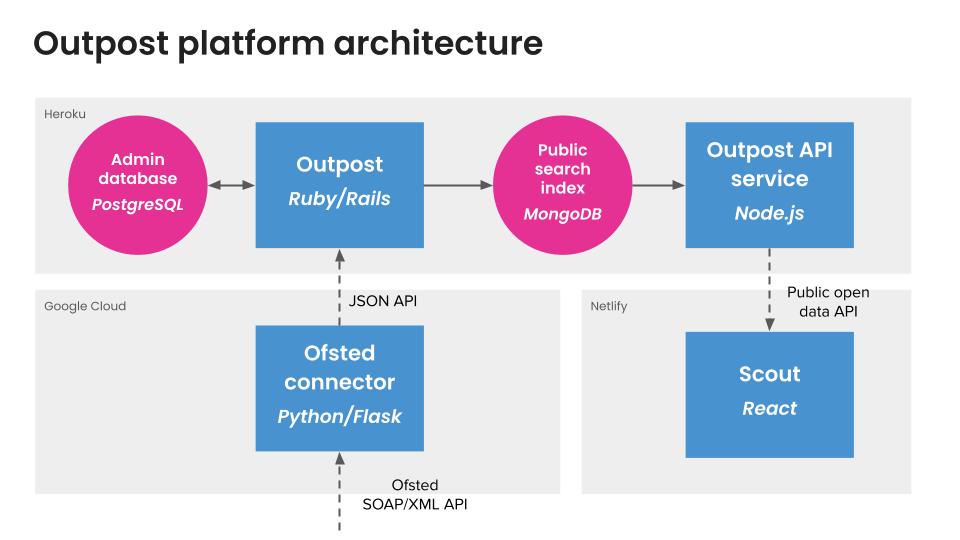
Why use the Outpost Platform?
- 💽 You own and manage your own data
- 🎁 Works out of the box
- 🔅 Low cost to get started
- 🕴 Extensible - customise to suit your needs without re-inventing the basics
- ⚒ Provides the tools you need to customise to your requirements (see [[Milestones]])
- 😵 Free up time spent wrangling data
- 🆕 New features are shared across adopters of the platform for the benefit of everyone
- 〽 Part of a community with a common goal
- 👨👦 Provide data to people who may have been grouped under the wrong categories in the past
The Outpost Platform Approach
The problem we're trying to solve
People, often councils, would come to us asking for help with really complex problems.
Often people start off asking for a new app or website, but the real problem is nearly always deeper than that.
A side effect of trying to solve for these deeper problems is that we often need to invent new, 21st century tools that don't exist yet, and that's what Outpost has become.
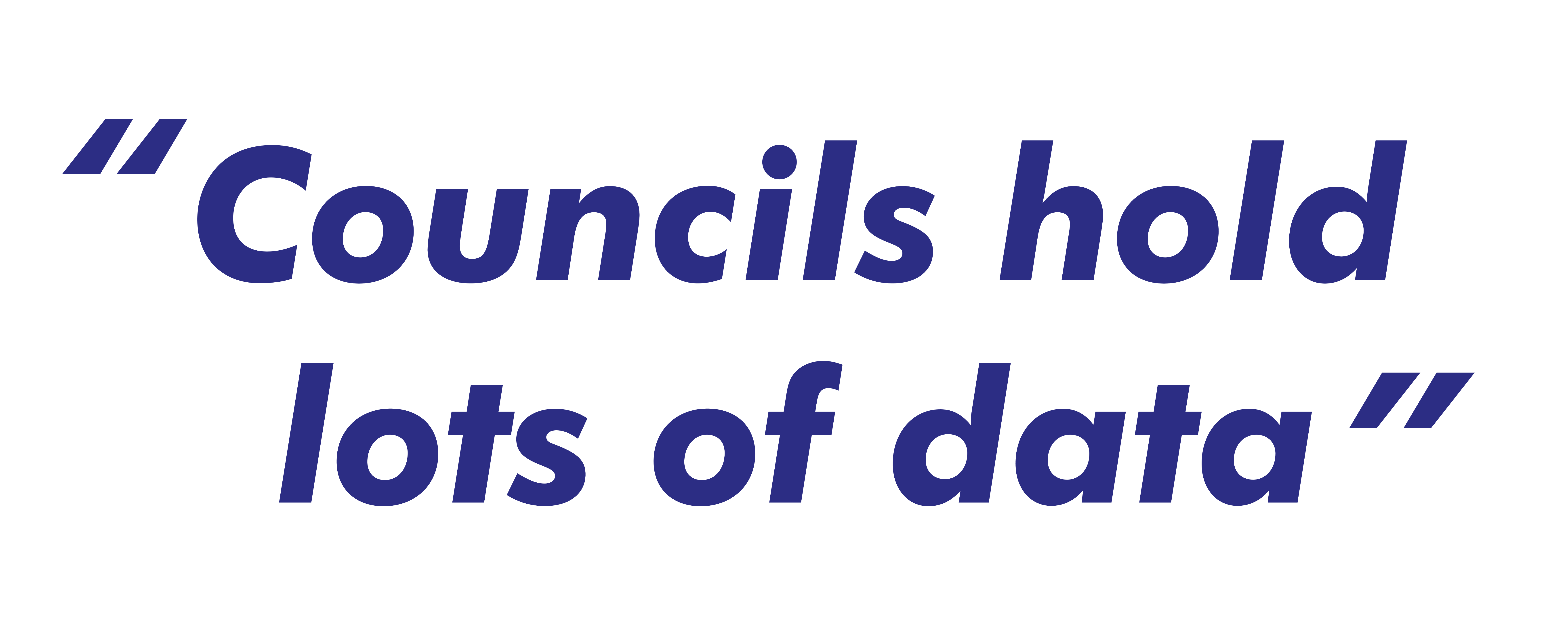
The deeper problem here is that councils hold lots of data. Councils hold lots of data about community services.
Most people will be familar with this. GP surgeries, children and family centres, charities that provide support to elderly people, support groups for new parents, church fetes, and everything in between.
We hold this stuff for lots of reasons, often to signpost residents to when they come to us for help, but their needs aren't quite high enough for us to be able to offer them direct support.
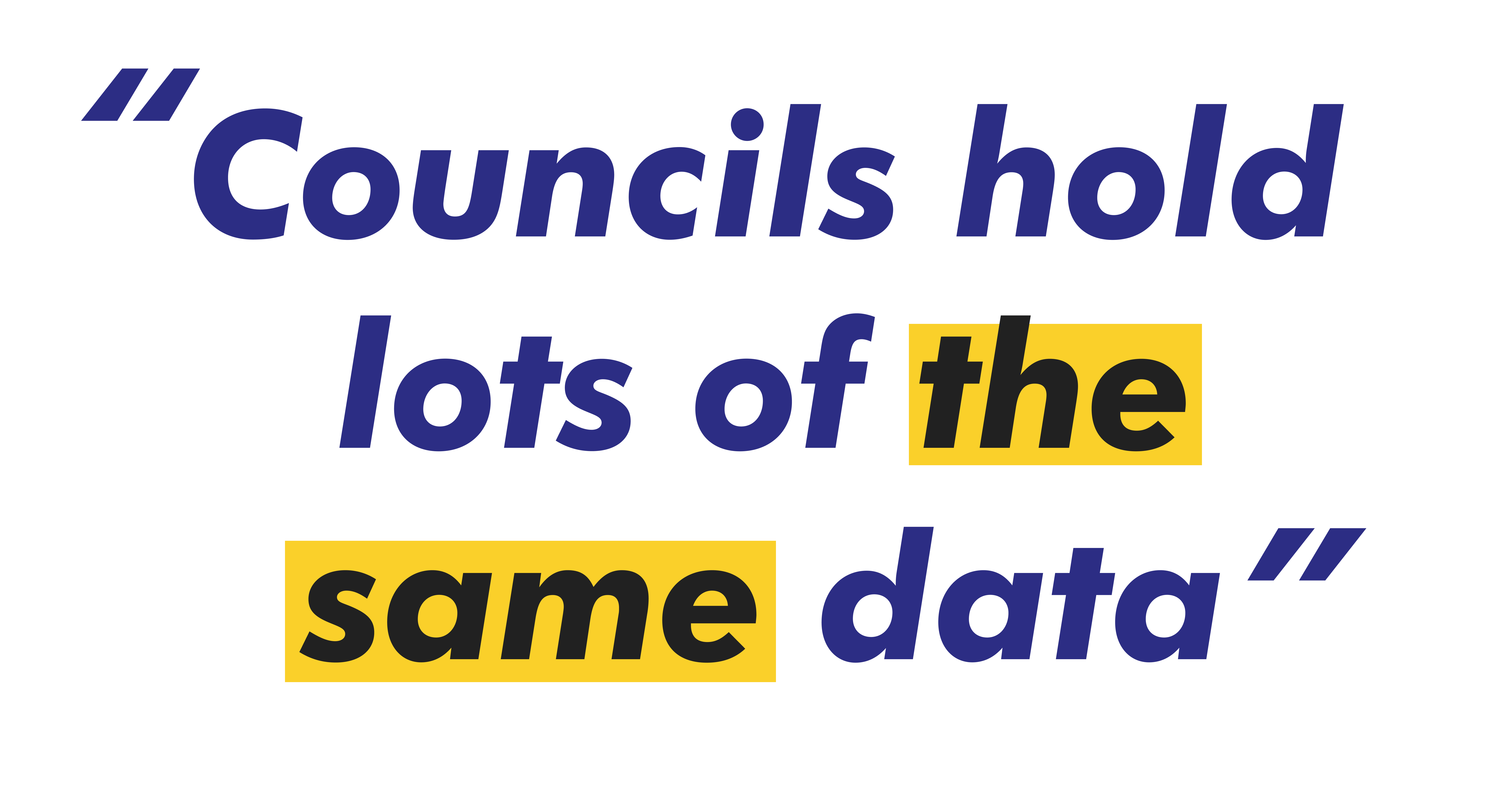
But because our organisations are structured in certain ways, we end up holding lots of the same data in different parts of the organisation.
Here are some distinct datasets we have found through our work. The total number is probably two or three times this. There is a high level of duplication between these datasets.
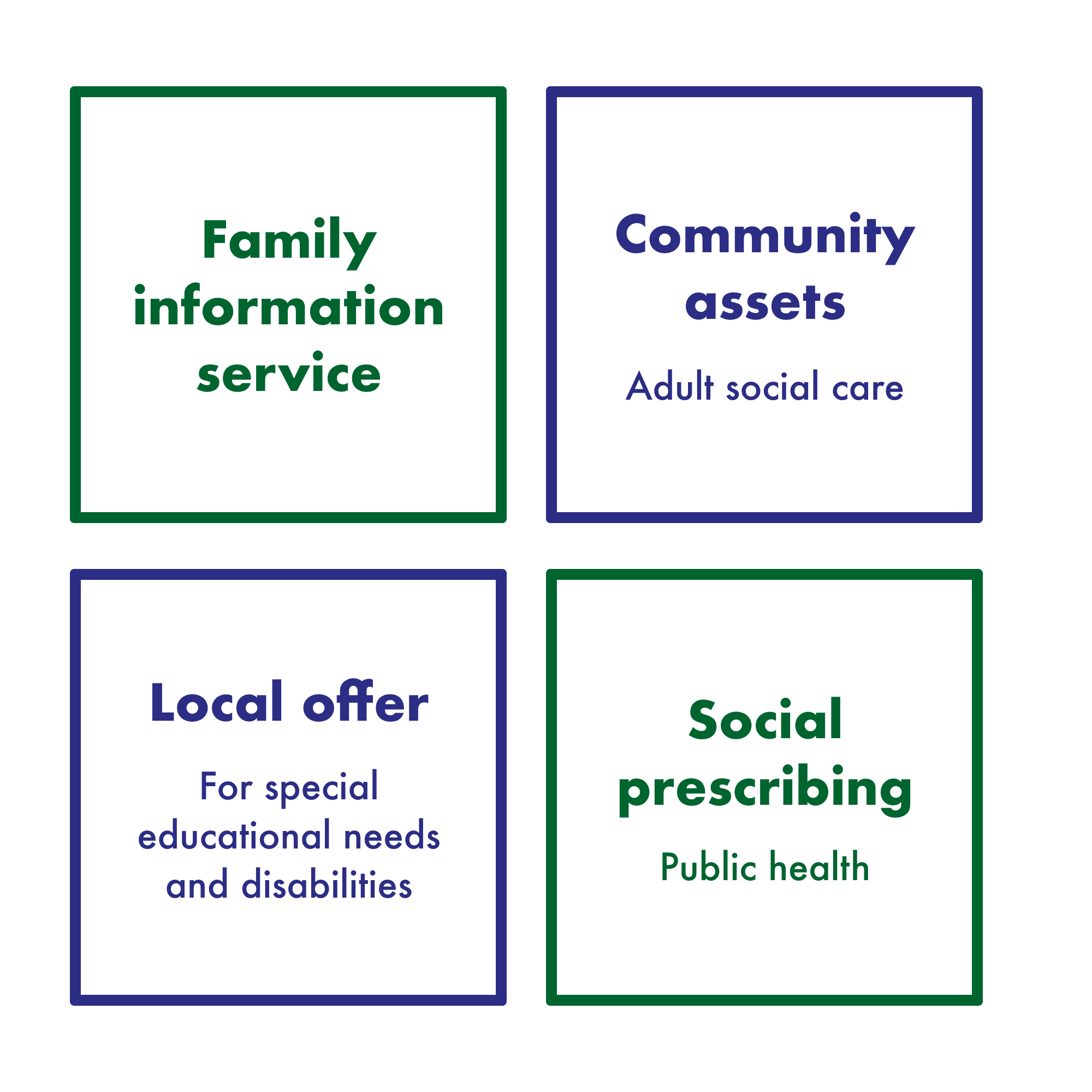
We wanted to build a new model for service directories that can fix this problem. Central to this approach is the idea of open data standards.
We're using a standard called Open Referral UK. It's basically a standardised way of describing the community services in an area.
Making it easy to publish, find and use community services data ~ Open Referral UK
This is what they say about themselves. The benefit of this is threefold:
- We can give residents more useful results and information when they go looking for things around them
- We can reduce duplication of effort and data within a local authority
- And, longer term, we can connect the data of different regions together and start forming a national, real-time picture of local community service provision.
That last one sounds pretty abstract, but imagine people who live on the boundaries of two authorities getting truly joined-up results. Imagine no longer needing to report to Ofsted or the DfE, because they're just connected up your data.
The Outpost Model
We've been building service directories and similar things for years, and we've had several attempts at solving this problem. All that research and co-design done in different places in the UK has gone into this model.
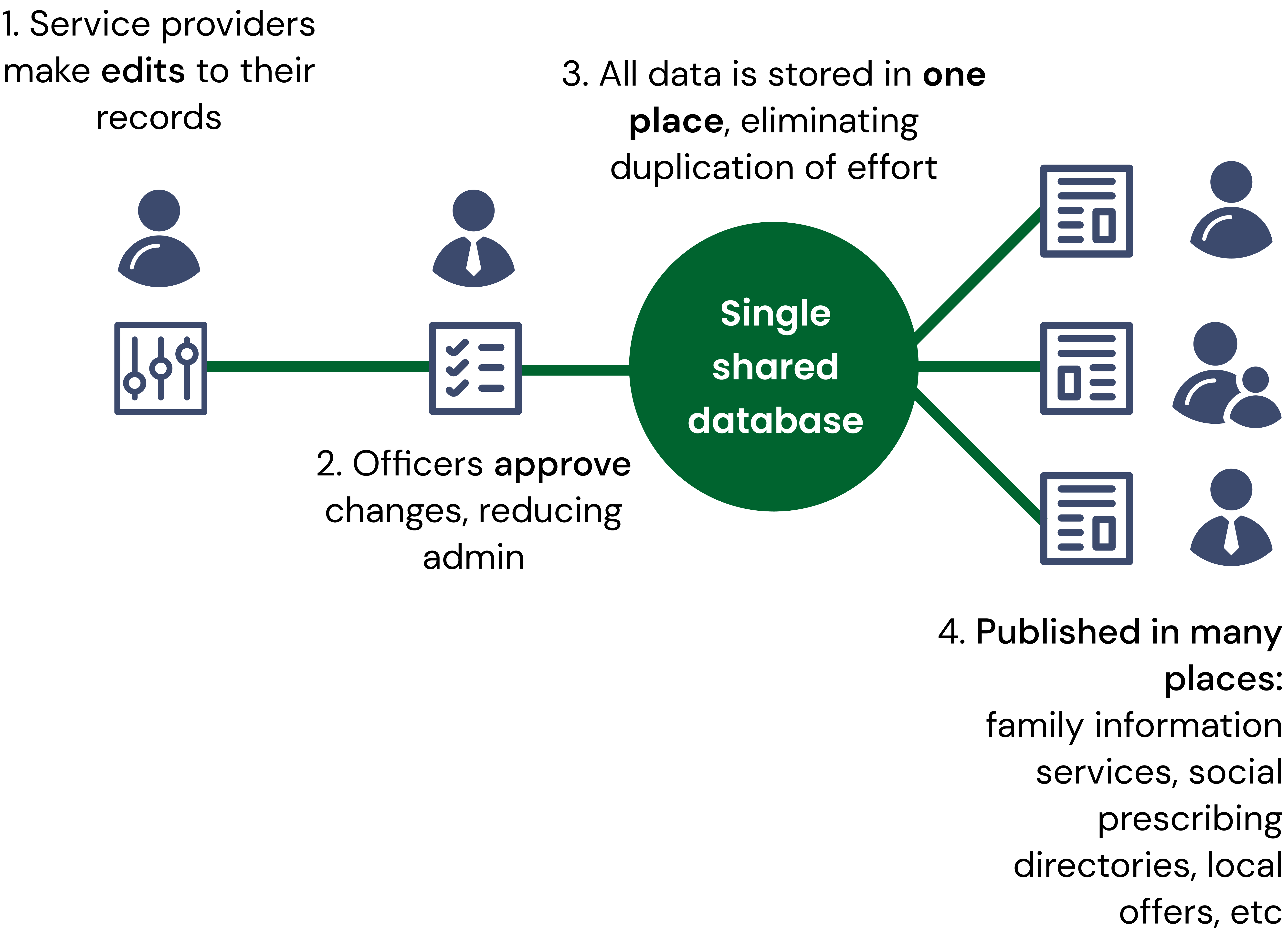
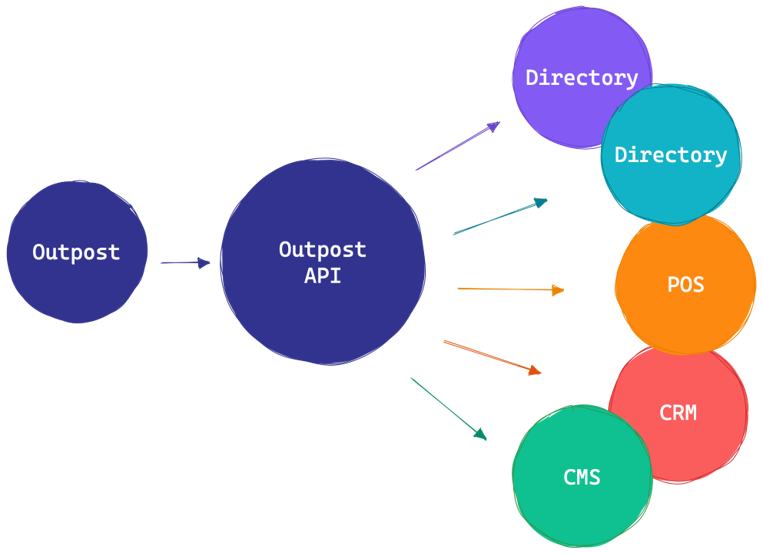
The Outpost Model revolves around one central data source, published in many places.
We are no longer limited to using a one-size-fits-all service directory. People looking for childcare are in a different frame of mind to people looking for sports to do at the weekend.
We can even publish community service data alongside our other services. Imagine applying for some statutory help from the council and, based on the information you give as part of that application, postcode, age, and so on, we can automatically say - hey, here's some other things you'll find useful.
We don't have to ask them to visit our service directory and just hope that they will any more. We can give people useful resources at the point of need - because if there's anything that we've learned about service directories it's that it's very rare that people deliberately seek them out.
Whatever size the audience of your directory is, there's a much larger latent group of users who, for whatever reason, just don't use it.
There's more to the model:
- Rather than council officers making edits directly, we've really emphasised a subset of residents (community users) owning and editing their own records, and we've made it easy for them to add multiple services or invite friends and colleagues to help them do that.
- Those people can have different logins, which prevents password sharing, which may well be the biggest security risk you don't know you have.
- Council officers then just need to approve edits, which is another big reduction in admin effort
- We store all the changes in a way that will be familiar to you if you've used the revision history in Google Docs.
What the Outpost Platform is not
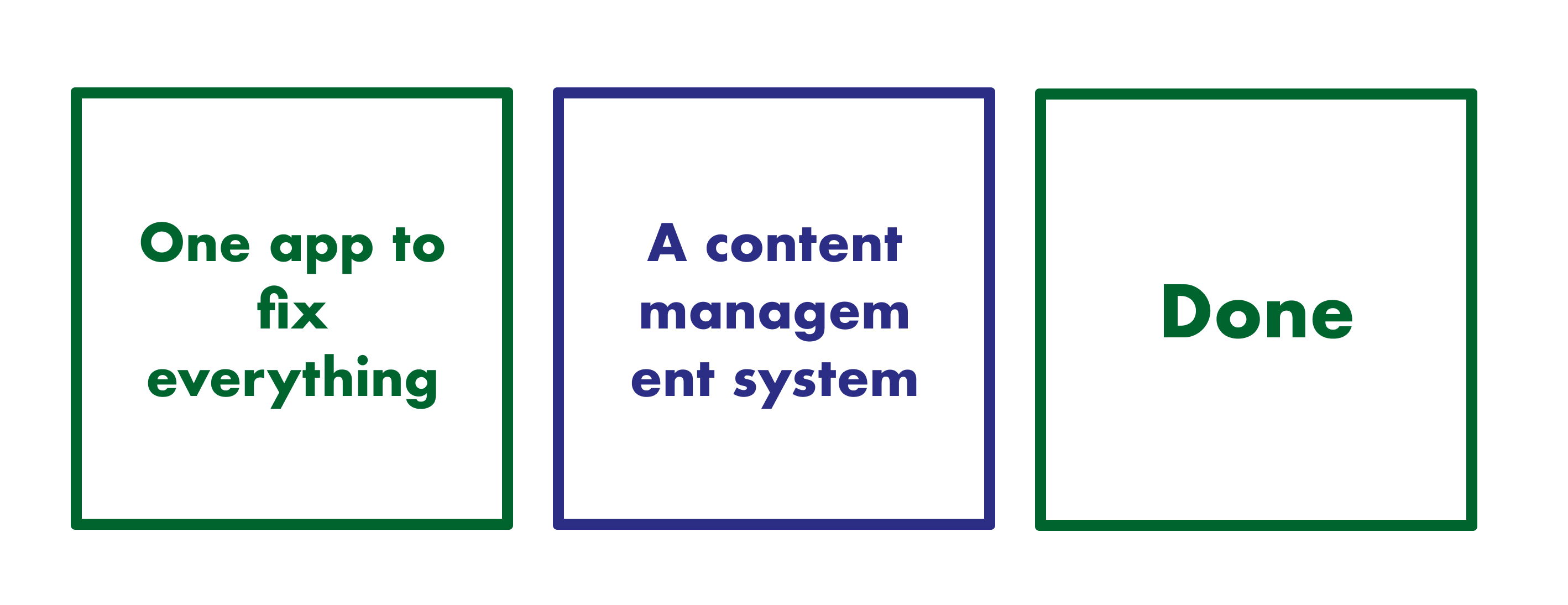
Despite all the above it isn't one app to fix everything. It is a platform, an ecosystem.
It's designed to work alongside and integrate with the other services your organisation offers.
You need to take the “one data source published in lots of places” model to heart, otherwise you wont really see the benefits of the Outpost model.
We have nonetheless, made an example frontend to help get you started, which we call Scout.
It's also not a content management system. Some products will let you edit information, advice and guidance pages. We deliberately chose not to try and reinvent that functionality - there's plenty of great content management tools out there like Wordpress, Drupal, Localgov Drupal and static site generators like Gatsby. The Outpost model allows you to integrate with these applications.
We're about integrating with what's already there.
Most importantly is not finished! Outpost is not quite three years old. It's being used by councils and other types of authorities at the moment.
The more people get involved, the more we can build a community around this new model and keep making it better. There is a huge amount of freedom to shape the direction of Outpost to suit your needs.